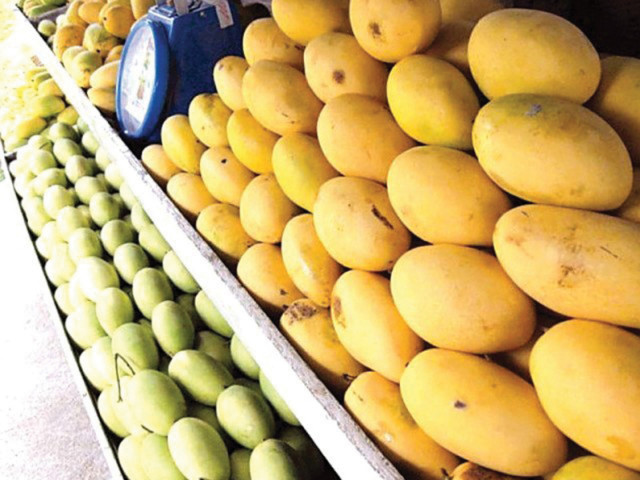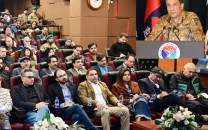Food for thought: 50% of Pakistanis ‘food insecure’, says FAO
Representative says 40% of country’s children are malnourished and underweight

Despite Pakistan being one of the major food producing countries in the world, 50% of its population is food insecure, said a top representative of the United Nations’ Food and Agriculture Organisation (FAO) to Pakistan, Patrick Evans.
He noted this on Tuesday while speaking at the 7th International Development Conference organised jointly by Sustainable Development and Policy Institute (SDPI), FAO, IFAD and WFP.

“To me this country has contradictions as far as food is concerned. On the one hand it is the 8th largest food producing country and on the other, its 50% population is food insecure,” said Patrick. Pakistan was the 6th largest producer of apricot, 5th largest producer of milk and grower of 25 million metric tonnes of wheat last year, he added.
He said that 40% of its children are malnourished and underweight due to lack of access to adequate food. “Pakistan produces enough food for its people. But the issue is access of its people to food.”
The FAO representative pointed out that there are some identified areas, which could be fixed to address this issue including equal access to the food and inclusive economic growth.
Federal Minister Sikandar Hayat Khan Bosan told the audience that Pakistan has made some progress in several areas over the last several decades, adding that if we look at the agricultural sector, we find that Pakistan is now producing enough food for its population, and also exporting significant quantities of various food commodities, including, rice, fruits and livestock products.
However, the minister also noted, much needs to be done to ensure that every Pakistani has access to safe and nutritious food at the household level.
“This has particularly been a challenge for the poor sections of society, and the problem has been exacerbated by various shocks, particularly the frequent natural disasters”, Sikandar Hayat said.
Furthermore, SDPI Executive Director Abid Qayyum Sulehri said that maintaining adequate food production and its availability to all the segments of society is the major challenge being faced by the country.
Secretary for the ministry of National Food Security and Research (NFCR), Seerat Asghar, said that our priorities need to be redirected for food security. He also added that budget for the NFCR is merely Rs1 billion for the year 2014-15, which clearly shows that food security is not a priority of the government.
Published in The Express Tribune, December 10th, 2014.



















COMMENTS
Comments are moderated and generally will be posted if they are on-topic and not abusive.
For more information, please see our Comments FAQ